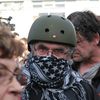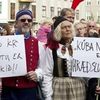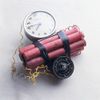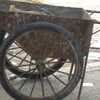Fęrsluflokkur: Menning og listir
25.7.2008 | 20:40
Hvernig Ķsrael var grundvallaš į žjóšernishreinsunum.
Ilan Pappe on How Israel was Founded on Ethnic Cleansing
June 16th, 2008 | Published in Articles by Ilan Pappé
The present dismal reality unfolding in the Middle East has clear historical roots and a journey into the past may help to illuminate what lies behind the destructive policies of Israel in both Palestine and Lebanon.
Zionism arrived in Palestine in the late 19th as a colonialist movement motivated by national impulses.
The colonisation of Palestine fitted well the interests and policies of the British Empire on the eve of the First World War.
With the backing of Britain, the colonisation project expanded, and became a solid presence on the land after the war and with the establishment of the British mandate in Palestine (which lasted between 1918 and 1948).
While this consolidation took place, the indigenous society underwent, like other societies in the rest of the Arab world, a steady process of establishing a national identity.
But with one difference. While the rest of the Arab world was shaping its political identity through the struggle against European colonialism, in Palestine nationalism meant asserting your collective identity against both an exploitative British colonialism and expansionist Zionism.
Thus, the conflict with Zionism was an additional burden. The pro-Zionist policy of the British mandate there naturally strained the relationship between Britain and the local Palestinian society.
This climaxed in a revolt in 1936 against both London and the expanding Zionist colonisation project.
The revolt, which lasted for three years, failed to sway the British mandate from a policy it had already decided upon in 1917. The British foreign secretary, Lord Balfour, had promised the Zionist leaders that Britain would help the movement to build a homeland for the Jewish people in Palestine.
The number of Jews coming into the country increased by the day - although even at that point, during the 1930s, the Jews were just a quarter of the population, possessing 4 percent of the land.
As resistance to colonialism strengthened, the Zionist leadership became convinced that only through a total expulsion of the Palestinians would they be able to create a state of their own.
From its early inception and up to the 1930s, Zionist thinkers propagated the need to ethnically cleanse the indigenous population of Palestine if the dream of a Jewish state were to come true.
The preparation for implementing these two goals of statehood and ethnic supremacy accelerated after the Second World War.
For the British the country lost its strategic importance once they were evicted from India.
It was a tense place that required the presence of British forces in equal numbers to those kept by the empire in the Indian sub continent - without obvious imperial rewards.
While the Zionist leadership finalised a plan for taking over the land and expelling the people between 1946 and 1948, the Palestinian leadership hoped the British empire would transfer to them their country in which they were still the vast majority and the indigenous population.
But Britain decided to transfer the issue of Palestine to the United Nations (UN) in February 1947. Palestine was the first conflict in which it was asked to mediate in a significant way.
It offered a pro-Zionist solution, and a very unjust and impractical one at that.
The first obstacle was that since the Palestinians demanded to be treated as any other Arab national movement, they expected the international community to recognise, without any conditions, their natural right to the country.
They did not expect this right to be negotiated with a colonialist movement. They therefore boycotted the process.
The UN ignored this and the special committee it appointed for the question, Unscop (United Nations Special Committee for Palestine) conversed only with the Zionist leadership. It devised a solution that catered for the needs and aspirations of that side alone.
In any case, the Palestinians had a difficult time presenting the moral side of their demands due to the Holocaust.
The Western international community was only too happy to evade any discussions about the implications of the genocide in Europe and to drop the problem on Palestine's doorstep.
The inevitable result of this approach was accepting almost unconditionally the Zionist demands for a state in Palestine.
Territorial
At the end of November 1947, the UN offered to divide Palestine into two states almost equal in their territorial space. The Jews were only one third of the population by 1947 and most of them had arrived in Palestine only a few years earlier.
The categorical Palestinian refusal to go along with this deal, backed by the Arab League, allowed the Zionist leadership to plan carefully the next step. Between February 1947 and March 1948, a final plan for ethnic cleansing was prepared.
The Zionist leadership defined 80 percent of Palestine (Israel today without the West Bank) as the space for the future state.
This was an area in which one million Palestinians lived next to 600,000 Jews.
The idea was to uproot as many Palestinians as possible. From March 1948 until the end of that year the plan was implemented despite the attempt by some Arab states to oppose it, which failed. Some 750,000 Palestinians were expelled, 531 villages were destroyed and 11 urban neighbourhoods demolished.
Half of Palestine's population was uprooted and half of its villages destroyed. The state of Israel was established in over 80 percent of Palestine, turning Palestinian villages into Jewish settlements and recreation parks, but allowing a small number of Palestinian to remain citizens in it.
The June 1967 war allowed Israel to take the remaining 20 percent of Palestine.
This seizure defeated in a way the ethnic ideology of the Zionist movement. Israel encompassed 100 percent of Palestine, but the state incorporated a large number of Palestinians, the people who Zionists made such an effort to expel in 1948.
The fact that Israel was let off easily in 1948, and not condemned for the ethnic cleansing it committed, encouraged it to ethnically cleanse a further 300,000 Palestinians from the West Bank and the Gaza strip.
But the June 1967 war was too short - six days - and the international community more aware. Palestinian society was more experienced. Hence Israel was left with a large number of Palestinians under its control and could not complete "the job".
The Palestinian national movement rose again in the form of the Palestine Liberation Organisation (PLO) and even if it did not liberate one square inch of Palestine, it did relocate the Palestinian issue and the 1948 Nakbah (catastrophe) in the centre of world public attention.
The ethnic cleansing operation was also defeated by the persistence and resilience of those Palestinians that were allowed to stay in Israel.
They became one quarter of the population.
Demography thus became the major issue in Israel's national security agenda. It overshadows any other concern, be it for social equality, democracy or human rights.
The educational system, the media and the politicians all stress the "danger" Palestinians constitute for the state's existence and the Jewish citizens' wellbeing.
In this situation the Israeli "left" urges downsizing the territory, the right calls for downsizing the Palestinians.
But the moral and ideological distance between the two poles of the political system is very short indeed.
After two uprisings in the occupied territories and a failed international diplomatic effort that totally ignored the root of the conflict as represented above, we are now back to the very basics of the conflict.
Impose
For the last six years, with the full backing of its Jewish electorate, successive Israeli governments have tried to impose by force what for them is the ideal solution.
It consists of imprisoning large numbers of Palestinians in enclaves in the West Bank and the Gaza strip, controlling thorough an apartheid system the Palestinian minority in Israel, and rejecting categorically any repatriation of the Palestinian refugees.
This plan is fully backed by the US.
Bush's neo-conservative presidency pursues its own unilateralism, trying to impose by military means and intimidation its economic and strategic values on the rest of the world.
Only two movements in the area resist Israel and the US.
Sadly for people of the left, like myself, they are not from "our school", but we should respect their steadfastness and will to resist occupation and colonisation. These are Hamas and Hizbollah.
Israel feels it has now a window of opportunity to eliminate these forces in Gaza and in Lebanon - and beyond in Syria and Iran.
The regional war that is developing may in the short run undermine these two forces, but in the long run it may mean Israeli confrontation not only with the Arab world but with the Muslim world as a whole.
At that point, the US might abandon it, and the Jewish state would end like the crusaders' kingdom of medieval times.
A disaster thus is looming for us all - Jews and Arabs - and it is only Europe that could avert it, if it would stop slaving its interests and ours, to the interests of the US and Zionism.
Menning og listir | Breytt s.d. kl. 20:51 | Slóš | Facebook | Athugasemdir (0)
25.7.2008 | 12:33
Forseti Ķslands og Saving Iceland. Kvalręši rugludallanna!
Tvennt er žaš sem fer mest ķ taugarnar į pirrušu bullskjóšunum žessa dagana. Forseti Ķslands ętlar til Kķna og Saving Iceland reynir aš bjarga įsżnd Ķslands (žessu sem eftir er). Forseti Ķslands į aušvitaš aš fara til Kķna og žaš į aš hlusta į Saving Iceland, sem og ašra umhverfisverndarsinna. Aš halda öšru fram er kerlingaraus og rugl!
Aušvitaš er ekki žęgilegt fyrir öfgasinnaša hęgrimenn og krata aš višurkenna aš Hr. Ólafur Ragnar Grķmsson er sį forseti, sem gert hefur Ķslendingum mest gagn, aš öšrum ólöstušum. Hann var fķnn ķ pólitķkinni. Žaš sést best į žvķ hvaš hęgriöfgamennirnir žola hann illa. Hann var jafnframt góšur greinandi į menn og mįlefni. Hver man ekki, žegar hann sagši um Davķš Oddsson, aš hann hefši skķtlegt ešli. Betri greining į DO hefur ekki veriš gerš. Žetta geta öfgamennirnair ekki fyrirgefiš Ólafi.
Žaš er įbygglilega vont fyrir žį, sem vilja ganga gegnum lķfiš meš lokuš augun, aš višurkenna aš varšveita og vernda žurfi nįttśruna. Saving Iceland, Al Gore, Ólafur F. o. fl. trufla vitanlega sofanda- og aulagang okkar gagnvart nįttśru jaršar. Viš viljum aš ekkert trufli okkur ķ gręšgi okkar og neysluęši. Žar til viš drepumst ķ eigin skķt! Far vel, mannkyn!
(Fyrir žį sem ekki muna, žį var Ólafur F. Magnśsson hrópašur nišur į flokksžingi öfga hęgrimanna. Kallašur föšurlandssvikari og eitthvaš fleirra ljótt! Žaš sem hann gerši af sér var, aš hann vildi halda ręšu um nįttśruvernd! Hann yfirgaf flokksžingiš undir hrópum skrķlsins. Ókvęšisoršum rigndi yfir hann flokksmönnum til ęvarandi skammar (vonandi). Ólafur sagši sig śr flokknum eftir žetta).
Menning og listir | Breytt s.d. kl. 12:42 | Slóš | Facebook | Athugasemdir (0)
25.7.2008 | 00:26
Rabbi Arik W. Ascherman:
Balaq: Human Rights and adhering to a democratic process
By Rabbi Arik W. Ascherman on July 10, 2008 - ז' תמוז תשס"ח
This week's Torah portion is Balak, full of dramatic stories as Balak calls upon Balaam to curse the Israelites. Only able to do what God tells him to say, Balaam blesses instead of curses. However, the Israelites manage to curse themselves by allowing the Moabite/Midianite women to entice them into engaging in idolatry. At God's command, Moses calls on the people to kill all those who have worshiped Baal. As Moses and the children of Israel weep apparently powerlessly, Aaron's grandson Pinkhas takes a spear and, as God commanded, kills an Israelite man and a Midianite woman "in the act."
As I mentioned last year, we liberals label Pinkhas as a vigilante, but he is actually doing exactly what God and Moses commanded. At the same time, we all know the dangers of a society in which people take the law into their own hands. We live in one.
When we started our Olive Tree Campaign back in 2002, Palestinians and those of us trying to protect them were being shot at, beaten, stoned, etc., while the Israeli security forces didn't show up, came late, or stood by. When we met with the commander and senior officers in the Ariel police station, I told them that their inaction was endangering Israelis as well as Palestinians. When the message to Palestinians was that there were no acceptable channels to deal with this kind of violence, what did the officers think would happen next? Some of you may also recall the stickers we handed out for several years "HaTokhnit HaKalkalit=P'tzatzah Khevratit." (Israel's Economic Policy is a Social Time Bomb."
Moses still has some moments of greatness to come, but we see him faltering here after almost 40 years of leadership. He too wrings his hands as evildoers flauntingly violate God's will. I still recall the former commander of the Shomron Brigade in the Nablus Region quoted in the newspaper shortly after moving to another position, saying that the thing he most regretted was not being more firm with those settlers who were behaving violently and out of control. He didn't do it while in a position to do so. When those with authority do not even uphold the laws and principles which they themselves proclaim, they both allow the lawless to run wild and they invite vigilantes to step into the vacuum. The danger is that the vigilantism is often worse than the actions/lack of action the vigilantes are opposing.
Today, the private companies running the Israeli Wisconsin plan lord it over those forced into their clutches, and there is no government oversight. A government appointed committee can set a deadline for the government to find a solution for the Holocaust survivors hungry for bread, and the govetment ignores it. The Knesset can pass all of the social legislation it wishes, but the Finance Ministry guts it via the Ecconomic Arrangements Law. At Elad's bidding the Israeli Antiquities Authority countenances archaeological digs in Silwan causing homes to crack and roads to collapse, shipping out skeletons against all regulations, etc., and nobody says a word. The police jail Palestinians who complain about Elad violence and break into the homes of those who dare to appeal to the High Court. There is a resounding silence from those in authority. Today I photographed more Palestinian land being fenced in by settlers in the South Hebron Hills. We spoke with others asking our help to return to their lands after all their complaints to the police about being forced off their land had been ignored. Will any government body take action? Hard to believe as we drove by location after location where settler crops or buildings were on land in which their had been explicit rulings in the favor of Palestinians.
. It is true that in some cases, there are issues where what is just and right is a matter of opinion. Here there must be a democratic process to determine how to act, as frustrating as it is when the right way seems so clear to us.
Where there are those who flaunt their disregard for what those in authority clearly state are the norms and those in authority either wring their hands or stay silent altogether, our society is in great danger.
As to those situations in which we must adhere to a democratic process because there are no clearly obvious norms, let us pray and work so that our society will internalize the final words of this week's Haftarah:
God has told you, humanity, what is good,
And what Adonai requires of you:
Only to do justice
And to love goodness
And to walk humbly with your God;
(Micah 6:8)
Menning og listir | Breytt s.d. kl. 00:38 | Slóš | Facebook | Athugasemdir (0)
Arik Ascherman: Rabbi-activist for the rights of Israelis, Palestinians, and foreign workers in Israel
By Rabbi Arik W. Ascherman on June 4, 2007 - י"ח סיון תשס"ז
"Sometimes, when you have tried everything else, and particularly when you see the values that we are sworn to uphold as rabbis being trampled on, you have no choice but to stand in front of the bulldozers, to exercise that democratic right of civil disobedience to try to have the opportunity in court to show that it's the law, the policy, that's really illegal and immoral."
Arik Ascherman is Executive Director of Rabbis for Human Rights in Israel. His personal journey has evolved from acquiring a Harvard education to standing trial in Israel for blocking home demolitions.
Born in Erie, Pennsylvania, Ascherman graduated from college in 1981. From then until 1983, he worked for Interns for Peace, a community work program in Israel involving Jews and Arabs. For most of this time, Ascherman lived in the Arab village of Tamra.
In 1989, he was ordained as a rabbi in the U.S. at the Hebrew Union College-Jewish Institute of Religion. During his training, he worked with soup kitchens and homeless advocacy in Israel. Following his ordination he worked as a rabbi and with Hillel chapters in the U.S. In Israel, he was director of Congregation Mevakshei Derech and was the part time rabbi of Kibbutz Yahel, a Reform kibbutz near Eilat.
He became a citizen of Israel in 1994, where he lives with his wife, Einat Ramon, the first Israeli-born woman to be ordained as a rabbi, and their two children.
Beginning in 1995, Arik Ascherman became co-director of Rabbis for Human Rights (RHR); becoming executive director in 1998. RHR is the only organization in Israel made up of rabbis and rabbinical students from all denominations of Judaism. It promotes justice and human rights for Israelis, Palestinians, and foreign workers. In May 2006, RHR received the prestigious Niwano Peace Prize.
Over the next few years, his commitment to human rights led him to nonviolent resistance to block bulldozers from destroying Palestinian homes. As a result of his actions, Ascherman was charged with "interfering with police performance of duties on two different occasions in 2003, and the intention to commit acts to prevent police from performing their duties." During his trial Ascherman explained his actions,
"I arrived at the homes for which I am on trial today carrying in my heart all the families in whose name I stand before you - the families that suffered and continue to suffer because of the home demolition policy. I held in my heart the looks of the children in Shufafat who had gone off to school in the morning and returned to discover their home demolished, with a toy or book peaking through the rubble ... I held in my heart the frightened looks of families sitting on packed suitcases waiting for the bulldozers to arrive, the grown men crying and the tens, if not hundreds of families whom I have spent time with before, during and after home demolitions."
In March 2005, a magistrate court found Ascherman guilty but said that he wouldn't have a criminal record. Upon his conviction, Ascherman said that he was disappointed the court did not address the injustice of home demolitions in its verdict.
"For us, this trial really was about the people who have no voice here, the victims of home demolition," Ascherman said. "And that's why we're going immediately from the courthouse...to begin the rebuilding of one of these homes."
Recent protests by Ascherman and Rabbis for Human Rights have focused on the separation wall. In 2006, RHR achieved a major victory when it won a lawsuit to prevent the wall construction from dividing the village Sheikh Sa'ad.
from Profiles of Peace: http://www.afsc.org/israel-palestine/profiles-of-peace/arik-ascherman.htm
Menning og listir | Breytt 25.7.2008 kl. 00:35 | Slóš | Facebook | Athugasemdir (0)
Menning og listir | Breytt s.d. kl. 23:21 | Slóš | Facebook | Athugasemdir (2)
24.7.2008 | 18:10
Gyšingar ofsękja Gyšinga ķ Ķsrael.
Messianic Jews say they are persecuted in Israel
![]()
The Associated Press
Published: June 21, 2008
![]()
![]()
![]()
![]()
![]()
![]()
![]()
![]()
![]() Text Size
Text Size
![]()
![]()
TEL AVIV, Israel: Safety pins and screws are still lodged in 15-year-old Ami Ortiz's body three months after he opened a booby-trapped gift basket sent to his family. The explosion severed two toes, damaged his hearing and harmed a promising basketball career.
Police say they are still searching for the assailants. But to the Ortiz family the motive of the attackers is clear: The Ortizes are Jews who believe that Jesus was the Messiah.
Israel's tiny community of Messianic Jews, a mixed group of 10,000 people who include the California-based Jews for Jesus, complains of threats, harassment and police indifference.
The March 20 bombing was the worst incident so far. In October, a mysterious fire damaged a Jerusalem church used by Messianic Jews, and last month ultra-Orthodox Jews torched a stack of Christian holy books distributed by missionaries.
Israel's Foreign Ministry and two chief rabbis were quick to condemn the burning, but the Ortiz family says vigorous police action is needed.
"I believe that it will happen again, if not to us, then to other Messianic believers," said Ami's mother, Leah Ortiz, a 54-year-old native of South Orange, N.J.
Proselytizing is strongly discouraged in Israel, a state that was established for a people that suffered centuries of persecution for not accepting Jesus and has little tolerance for missionary work.
At the same time, Israel has warm relations with U.S. evangelical groups, which strongly support its cause, but these generally refrain from proselytizing inside Israel. Even the Mormon church, which has mission work at its core worldwide, agreed when it opened a campus in Jerusalem to refrain from missionary activity.
"Historically the core of Christianity ... was 'convert or die,' so it was seen and is still seen as an assault on Jewish existence itself," said Rabbi David Rosen, who oversees interfaith affairs for the American Jewish Committee. "When you are called to join another religion, you are being called on to betray your people."
Messianic Jews consider themselves Jewish, observing the holy days and reciting many of the same prayers. The Ortiz family lights candles on the Jewish Sabbath, shuns pork and eats matzoth on Passover.
Ami Ortiz, interviewed at the Tel Aviv hospital where he is being treated, comes across as no different from any Jewish Israeli his age. He's a sabra, or native-born Israeli, who speaks English with a Hebrew accent, has an older brother in an elite Israeli army unit and was hoping to join the youth squad of Maccabi Tel Aviv, a league-topping basketball team.
But his religion also holds that one can embrace Jesus - Ami calls him by his Hebrew name, Yeshua - as the Messiah and remain Jewish. Orthodox Jews, on the other hand, believe that the Messiah has yet to come, that he will do so only when he chooses, and that any attempt to pre-empt his coming is a grievous sin.
Rabbi Sholom Dov Lifschitz, head of the ultra-Orthodox Yad Leahim organization that campaigns against missionary activity in Israel, says Messianic Jews give him "great pain."
"They are provoking ... it's a miracle that worse things don't happen," he said.
Messianic activists appear to have had some success among couples with one non-Jewish spouse, as well as immigrants from Ethiopia and the former Soviet Union who have loose ties to Judaism.
Or Yehuda, a town in central Israel with many immigrants as well as ultra-Orthodox Jews including a deputy mayor, Uri Aharon, was the scene of the May 15 book-burning.
Ami Dahan, a local police official, says hundreds of Christian religious books were burned on May 15 in an empty lot in town. He said Deputy Mayor Uzi Aharon, has been questioned on suspicion that he instructed youths to collect the books from homes where they had been distributed and told them to burn them.
Aharon denies ordering the burning. He says the books were collected from a neighborhood of mostly Ethiopian immigrants who are easily persuaded by missionaries.
"There are three missionaries who live and work in the town, and every Saturday they take people to worship and try to brainwash them," Aharon said.
Many Messianic Jews say they recognize the sensitivities involved and do not distribute religious material or conduct high-profile campaigns. But Aharon noted a recent "Jews for Jesus" campaign with signs on buses that equated two similar Hebrew words - "Jesus" and "salvation." Public outrage quickly forced the bus company to remove the signs.
Lawyer Dan Yakir of the Association for Civil Rights in Israel says the law allows missionaries to preach provided they don't offer gifts or money or go after minors.
"It is their right according to freedom of religion to maintain their religious lifestyle and disseminate their beliefs, including through literature," he said.
But the obstacles are evident, raised not just from religious activists but by the state.
Calev Myers, a lawyer who represents Messianic Jews, said he has fought 200 legal cases in the past two years. Most involve authorities' attempts to close down houses of worship, revoke the citizenship of believers or refuse to register their children as Israelis. In one case, Israel has accused a German religion student of missionary activity and has tried - so far unsuccessfully - to deport her.
In incidents of violence, police are reluctant to press charges, Myers said.
The book-burning caused shock among U.S. evangelicals.
Dave Parsons, spokesman of the International Christian Embassy in Jerusalem, which represents evangelical Christian communities, said the test would be how vigorously authorities pursued the case.
"We believe there is a link to a series of incidents here in the land that involve harassment, intimidation and physical violence," he said.
The Ortiz family moved from the United States to Israel in 1985, qualifying as immigrants under Israel's Law of Return because Leah, the mother, is Jewish. In 1989 they moved into Ariel, a Jewish settlement in the West Bank, and established a small Messianic group which now numbers 60, most of them immigrants from the former Soviet Union, according to David Ortiz, the pastor and Ami's father.
He said that he built the community through conversations with friends and neighbors, but did not actually go door-to-door distributing religious material to strangers in the traditional sense of missionary work. David Ortiz says he has also proselytized in the Palestinian areas - prompting Islamic leaders there to warn against contact with him. Ortiz said he had "no problem" if Messianic Jews discuss their religious views with others and persuade them to believe in Jesus.
When the family began holding study sessions, a rabbi warned Ortiz not to speak about Jesus outside the home.
In 2005, fliers were distributed in Ariel warning that there were believers of Jesus in the community. One day, two men wearing the black skullcaps of Orthodox Jews knocked on the door and photographed Ortiz when he answered. Recently the photo turned up on a flier with the family's address.
When the basket was left at the door Ami wasn't surprised, since it was Purim, a holiday when Jews exchange gifts.
"I opened it up and I heard it and then I was on the floor and I didn't hear anything, I didn't see anything," the lanky boy recalls.
Ami was in critical condition, with severe gashes in his legs and feet and one that just missed his jugular vein. His tryout for the Maccabi team was canceled.
His family initially suspected Palestinians; Ariel is in the heart of the West Bank and surrounded by Palestinian towns and villages and, like most Jewish settlements, has been the target of Palestinian attacks (Žetta eru mjög athyglisverš višbrögš. Ķ frétt hér aš nešan um flugskeytaįrįs landtökumanns koma fram sömu višbrögš. Spurning, hversu oft röngum ašila, ž.e. Palstķnumönnum er kennt um. Athugasemd mķn APG). But police immediately told him the bomb was more sophisticated than those made by Palestinians since it contained plastic explosives.
"Nobody ever suspected that a Jewish group would do such a thing, that they would put a bomb in somebody else's house," David Ortiz said.
Police have since told the family that Palestinians were not behind the bombing. The family has footage from a security camera of a man delivering the package, according to a person close to the family who spoke on condition of anonymity because police say disclosing details could harm the investigation.
Police spokesman Danny Poleg would not discuss the case, saying only that no arrests have been made.
Meanwhile, the Messianic Jewish believers are taking no chances. These days they worship under the protection of an armed guard.
![]()
Menning og listir | Breytt s.d. kl. 18:12 | Slóš | Facebook | Athugasemdir (0)
23.7.2008 | 19:40
Bedśķnar ķ Ķsrael eru beittir skipulegu misrétti af yfirvöldum!
Ég įkvaš aš birta žessa sķšu vegna žeirra ummęla eins af "vinum" Ķsraels į žį leiš, aš Bedśķnar ķ landinu byggju viš alveg sérstaklega góšan kost og ašstęšur aš öllu leyti!
|
|
Discrimination against the Negev Bedouin in State PlanningFact Sheet
Facts
A history of the legal battle
|
Menning og listir | Breytt s.d. kl. 20:06 | Slóš | Facebook | Athugasemdir (0)
4.4.2007 | 23:10
Ódaušleg ritverk?
Er žaš nś ekki aš bera ķ bakkafullan lękinn aš blogga gamlar og įšur birtar įróšursgreinar sķnar hér į blog.is. Ekki žaš, aš žaš sé bannaš aš endurnżta ritverk sķn hér og hiš besta mįl, ef einhver nennir aš lesa žessar "endurśtgįfur". Ég hefši bara haldiš aš allir sem įhuga hafa vęru bśnir aš renna yfir žetta į Baugsmišlum, og svo aš Hannes fęri nś létt meš aš glešja okkur lesendur sķna meš einhverju frumsömdu!
Ég er reyndar ekki bśinn aš kaupa og lesa ęvisögu Halldórs Killjans Laxness (sakir blankheita og athyglibrests;fengi sekt į safninu), žannig aš ef Hannes slysast til aš lesa žetta blog mitt, og ef hann hefur tķma, žį vęri vel žegiš aš fį lesa sögu Nóbelskįldsins hér endurśtgefna. Meš fyrirfram žökk, Aušun Gķslason.
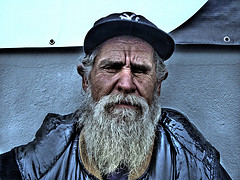

 dolli-dropi
dolli-dropi
 malacai
malacai
 bjarnihardar
bjarnihardar
 brandurj
brandurj
 ea
ea
 killjoker
killjoker
 coke
coke
 vglilja
vglilja
 gudrunmagnea
gudrunmagnea
 neytendatalsmadur
neytendatalsmadur
 veravakandi
veravakandi
 hehau
hehau
 gorgeir
gorgeir
 hlynurh
hlynurh
 disdis
disdis
 ingabesta
ingabesta
 jevbmaack
jevbmaack
 palmig
palmig
 joiragnars
joiragnars
 manisvans
manisvans
 stebbifr
stebbifr
 svanurg
svanurg
 vefritid
vefritid
 vestfirdir
vestfirdir
 para
para
 hreinsamviska
hreinsamviska
 kreppukallinn
kreppukallinn
 veffari
veffari
 arnith
arnith
 icekeiko
icekeiko
 andres08
andres08
 skagstrendingur
skagstrendingur
 gattin
gattin
 skulablogg
skulablogg
 haugur
haugur
 heimssyn
heimssyn
 snjolfur
snjolfur
 kreppan
kreppan
 kamasutra
kamasutra
 ksh
ksh
 larahanna
larahanna
 raudurvettvangur
raudurvettvangur
 siggisig
siggisig
 siggith
siggith
 lehamzdr
lehamzdr
 vest1
vest1
 iceberg
iceberg
